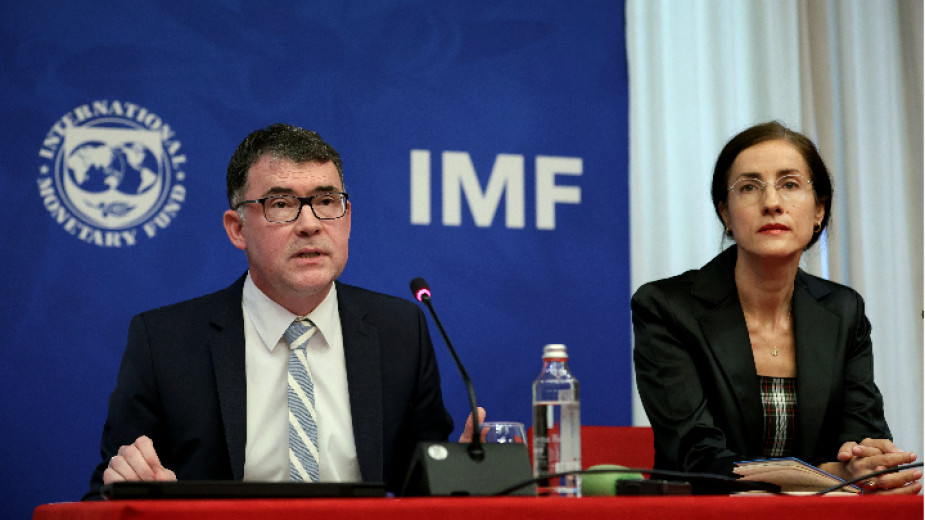
Bulgaria has the opportunity to reap the full benefits of eurozone membership, but this will require stronger fiscal discipline, effective management of transition risks, and accelerated structural reforms, the International Monetary Fund (IMF) mission said on Tuesday, as reported by the Bulgarian News Agency (BTA).
The IMF expects GDP to grow by around 3% in 2025–26, supported by private consumption and credit expansion. Inflation is expected to ease, though it will remain at around 3.5%, driven by rising labour costs: wages are rising faster than productivity, which puts pressure on profits and pushes companies to raise prices.
The IMF also recommends investing in human capital, improving the rule of law, enhancing competition in public procurement and reforming the energy sector.
As of August 8, 2025, the mandatory indication of prices for all goods and services in Bulgaria in two currencies – in Bulgarian leva and in euros – has been in effect. This obligation will remain valid for traders for a period of one year – until..
As of January 1, 2026, the minimum monthly wage should be 1,213 BGN (EUR 620.2), up from the current 1,077 BGN (EUR 550.66), said Luboslav Kostov, Chief Economist at the Confederation of Independent Trade Unions in Bulgaria (CITUB), in an interview..
Inflation in the EU in July reached 2.4% on an annual basis , according to Eurostat data. Regarding Bulgaria, European statistics report an increase in inflation to 3.4% in July this year compared to the same month last year. According to this..
For the first time, Bulgaria’s Minister of Finance Temenuzhka Petkova took part as an observer in the regular meeting of the Eurogroup held in..

+359 2 9336 661
